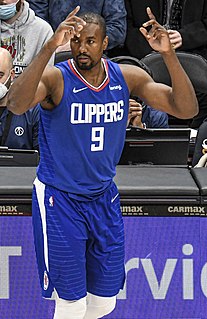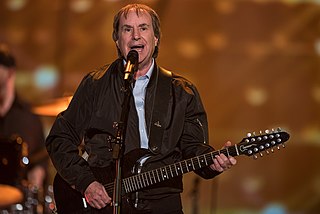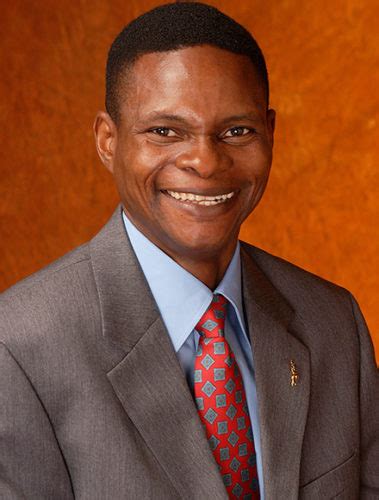A Quote by Serge Ibaka
Ask anybody from Africa which country is the best in terms of dressing, and they'll tell you Congo.
Related Quotes
Sudan has been an experiment that resonated across Africa: if we, the largest country on the continent, reaching from the Sahara to the Congo, bridging religions, cultures and a multitude of ethnicities, were able to construct a prosperous and peaceful state from our diverse citizenry, so too could the rest of Africa.
I used to dream about Gorbachev before he lost power. I'd go into a panic because I was meeting him, and I had nothing to wear. I'd ask my brother what to do, and he'd tell me to wear my dressing gown. I'd tell him I can't - it's too horrible. He'd tell me to wear his as well. So I'd meet Gorbachev wearing two dressing gowns.
I chose Congo in order to become close to a place that we had turned away from. It isn't present in our imaginations, in the stories we tell each other. Yet it's relevant to our lives and to our worlds, in a practical way. Congo supplies raw materials for the things that we use on a daily basis. We are intimately linked to Congo, economically. We're linked to it through human events that are occurring there, that affect all of us, and yet you don't find narratives of Congo present in our lives.
There is no other place where the heart should be so free as before the mercy seat. There, you can talk out your very soul, for that is the best prayer that you can present. Do not ask for what some tell you that you should ask for, but for that which you feel the need of, that which the Holy Spirit has made you to hunger and to thirst for, you ask for that.
The commentators of 1963 speak, in discussing Africa, of the Monrovia States, the Brazzaville Group, the Casablanca Powers, of these and many more. Let us put an end to these terms. What we require is a single African organisation through which Africa's single voice may be heard, within which Africa's problems may be studied and resolved.
I wanted to tell the story of these women and the war in the Congo and I couldn't find anything about them in the newspapers or in the library, so I felt I had to get on a plane and go to Africa and find the story myself. I felt there was a complete absence in the media of their narrative. It's very different now, but when I went in 2004 that was definitely the case.
I don't ask my students to have studied film or any education in general. What I ask them is to come and sit and tell me a story, and the way they choose it and tell it, for me, the best criteria for whether they are right for making films. There's nothing more important than being able to tell your story orally.





































